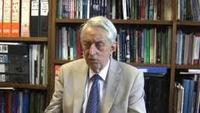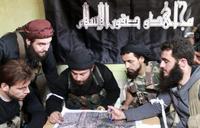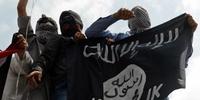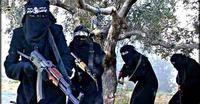-
Tension between humanitarian ideals, fear of terrorism in European asylum decisions
New research has found that European states that experienced a terrorist attack on their own soil since 1980 were less likely to grant asylum to refugees. The study also found, however, that on the whole, concerns over terrorism in Europe have not eroded underpinnings of the Geneva Convention’s principles regarding asylum admission.
-
-
Better regional coordination for port security
In the days following the 9/11 terrorist attacks, first responders in the Northeast were suddenly responsible for monitoring potential targets, including a military base, nuclear power plants, and a deep water port. Emergency teams soon found out that they were ill-equipped to coordinate with one another. That realization prompted better organization among regional first responders.
-
-
A first: Jury finds bank guilty of financing terrorism
In a major development on the terrorism financing front, a U.S. jury found Arab Bank Plc liable for providing material support to Hamas and ordered the bank to compensate nearly 300 Americans who are either victims or relatives of victims of at least two dozen attacks tied to Hamas in Israel and the Palestinian territories.
-
-
U.S. starts air strikes on Syria as shadowy new threat emerges

The United States has commenced major air operations against the Islamic State (IS) in Syria. Why has the United States suddenly expanded the air war by going for the heart of the Islamic State’s power base in Raqqa, Syria? The answer almost certainly lies with what has happened in the past six weeks in the ongoing air war in Iraq. There, more than 190 air strikes on close to 250 targets have done little more than blunt some of IS’s recent advances, and have conspicuously failed to stop the group from making gains elsewhere. More generally, the new government of Prime Minister Haider al-Abadi has so far failed to convince key Sunni clans in western and north-western Iraq that it will run a more inclusive regime; as a result, clan leaders are far too suspicious to work alongside government forces. In the short term, Washington is presenting this rapidly accelerating war as a decisive action to permanently cripple IS. It may well look like a success at first — but that will almost certainly be highly misleading. In reality, the Third Iraq War, now extended into Syria, is merely in its very early stages.
-
-
Al-Qaeda-affiliated Khorasan group more dangerous than ISIS: Analysts

As the the United States begins to counter military advances made by the Islamic State (IS) in northern Iraq and Syria, security analysts are concerned about other militant groups which could fill the power vacuum once ISIS shows signs of retreat. ISIS currently lacks the capability directly to attack the United States, and its threat is mostly regional disruption, analysts say, but another militant group in Syria – called the Khorasan group — does have ambitions to attack Western countries at home.
-
-
ISIS is brutal, but also business-savvy
Oil smuggling, extortion, human trafficking, selling women and children into slavery, smuggling antiquities, and kidnapping for ransom have made the Islamic State (IS) the wealthiest terrorist group in history, according to reports from senior U.S. intelligence officials. Since controlling large sections of Iraq and Syria, including as many as eleven oil fields, ISIS daily revenues have reached $3 million.
-
-
Concerns about use of Ebola as a bioweapon exaggerated: Experts
The stabbing of a federal air marshal with a syringe at the airport in Lagos, Nigeria, three weeks ago has raised concern about the possibility that the Ebola virus could be harvested by terrorists and used as a bioweapon. Security experts say that worries about the Ebola being used as a weapon by terrorists are exaggerated, since it would be very difficult for terrorists to grow large quantities of the virus and then turn the virus into an effective, dispersible weapon to cover a wide area in order to infect and kill a large number of people. Still, experts say the possibility of Ebola as a terror weapons cannot be completely discounted – especially small-scale attacks on individuals, like the attack on the air marshal at Lagos airport. Potentially even more dangerous would be a bioattack by suicide infectors – individuals who deliberately infected themselves for the purpose of carrying the virus out of an epidemic zone in order to infect people in other areas or even other countries.
-
-
Anti-Islamic posters to be displayed on NYC buses, subway stations

An advocacy group has purchased $100,000 worth of advertising space on a hundred New York City buses and two subway stations to display anti-Islamic messages and images. The campaign features six posters, including one of James Foley, the American journalist beheaded by ISIS in August, and another of Adolf Hitler. In 2012 the MTA rejected the group ad purchase, but a court ruled that the posters were “political” in nature, and therefore covered by the First Amendment.
-
-
French jets attack ISIS targets in Iraq
French military jets earlier this morning (Friday) have carried out the first strikes by a U.S. ally against Islamic State (IS) militants in Iraq. A statement from the office of President Francois Hollande said the planes had attacked an ISIS depot in north-east Iraq, and that the coming days will see additional French attacks on the Islamist group. The United States has carried out more than 170 air strikes against the Jihadist group in Iraq since 8 August. President Francois Hollande’s office said Rafale planes had carried out the attack and “the objective was hit and completely destroyed.” The statement added that “Other operations will follow in the coming days.”
-
-
U.S. intelligence, leaders unclear on exact danger posed by ISIS

Considerable discrepancies in the reporting from U.S. intelligence services regarding the strength of the Islamic State (IS) have led critics to the conclusion that the U.S. intelligence community knows little about the terrorists’ actual strength as the United States is in the process of developing a military strategy to defeat the Islamist organization.
-
-
Two ISIS supporters arrested in Australia for planning a public beheading in Sydney
Yesterday (Thursday), the Australian security services, conducting the largest counterterrorism raids in the Australia’s history, arrested fifteen ISIS supporters, charging two of them with planning to grab an Australian citizen and publicly behead him on a Sydney street – while filming the operation for posting on social media. The government says about 100 Australians are actively engaged in activities within Australia aiming to support extremist Islamist groups — recruiting fighters, grooming suicide bomber candidates, and providing funds and equipment.
-
-
Terrorists can be defeated by fighting fear with cooperation
From anarchists in the 1920s and radical leftists in the 1960s, to fringe, extreme-right Christian bombers or gunmen in the United States in recent decades, or radical Islamists such as Islamic State today, terrorist groups have one thing in common. They seek to shock, while simultaneously portraying themselves as victims. While their beliefs can vary wildly, what they all share is the “propaganda of the deed” in their extreme violent activities. Given that we have seen a number of terrorist groups come and go over the decades, it bears scrutiny how these various groups were successfully stopped, as well as where governments failed. At present, radical Islamic terrorists do not appear to have the capacity to develop well-organized cells in places like Australia or Canada, and will most likely dissipate as previous anarchists and ultra-Marxists did decades ago. The next big question in all of this is how to de-radicalize. What has worked and what has failed in terms of de-radicalization efforts by various governments? Hopefully, the government is engaged in a careful consideration of this, and has thought about how other countries have handled the problem of domestic terrorism.
-
-
U.S. launches campaign to combat recruitment of young Americans by militant groups

The White House, Justice Department (DOJ), DHS, and the National Counterterrorism Center have formed an alliance to combat the recruitment of young Americans to join militant groups like the Islamic State (IS) and Somali-based al-Shabaab.Officials have not released details on the network of community partnerships but local law enforcement officials, religious leaders, teachers, mental health professionals, and parents are expected to help monitor at-risk youths.
-
-
NYC mayor de Blasio facing criticism for curbing counterterrorism programs
New York City mayor Bill de Blasio is facing backlash over his decision to curb several counterterrorism programs introduced by former mayor Michael Bloomberg. Among other things, de Blasio has restricted the NYPD’s stop-and-frisk program; approved issuing municipal IDs of standards lower than those mandated by the federal government’s RealID program; is refusing to reinstate a special surveillance program which targeted Muslim communities in New York; and has also replaced the highly regarded deputy police commissioner for intelligence.
-
-
The latest trend in Jihadist recruitment in the West: Women

Counterterrorism officials have been dealing with the threat of Westerners traveling to the Middle East to join the Islamic State (IS), but now they must also combat the growing threat of American female Jihadists joining IS and other militant groups, including Somali-based, al-Shabaab. Photos and videos of female Jihadists on Islamic social networks show them enforcing Islamic dress codes on local women in captured villages, and even cooking for their male counterparts.
-
More headlines
The long view
How Male Grievance Fuels Radicalization and Extremist Violence
Social extremism is evolving in reach and form. While traditional racial supremacy ideologies remain, contemporary movements are now often fueled by something more personal and emotionally resonant: male grievance.
